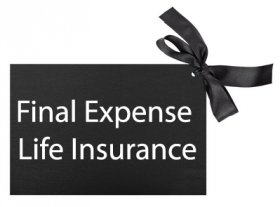Short and long-term insurance coverage options exist in all forms. When it comes to final expense insurance, it might get confusing, because it has the appearance of being short-term coverage, but that might not be the case. Read more about short and long-term coverage and what category final expense falls into.
Defining Short-Term Coverage
What is short-term coverage when it comes to insurance? In short, a short-term policy has a set expiration date. For example, term life insurance is short-term coverage, because it covers a specific time frame or “term.” While It may sound like a bad idea to only have short-term coverage, the premiums tend to be lower for this type of policy. In addition, a term life insurance policy may be converted into a whole life policy later, depending on the company it was purchased from.
Defining Long-Term Coverage
In contrast to short-term coverage, whole life policies do not expire. There is no need to renew a whole life policy, and a death benefit is guaranteed as long as premiums are paid. Remember, these premiums will be higher as a rule, however, there are some benefits that are not available for term policies.
Whole life policies also have the benefit of having cash value and can also be borrowed against. You can not do this with a term life policy.
Final Expense is Long-Term Coverage
Although they have affordable premiums, a final expense insurance policy is not short-term coverage. Because the policy does not have a fixed expiration date, it continues until the policy holder passes away. There is no need to renew it.
In addition, the death benefit is guaranteed. The only way it can be reduced is if the policy holder borrows against the policy. So, if you have a final expense policy valued at $15,000, then $15,000 will be paid out to the beneficiaries upon your passing.
The fact that you can borrow against the value of the policy is another reason that final expense insurance is deemed long-term coverage. As you pay your premiums, the policy accrues a cash value. This can be used in emergencies to help in cash crunches.
Should I Get Term Life Insurance?
Term life policies are great when you have a young family. They offer flexibility and lower premium costs. If you are under 40, a term life policy can protect your family against unforeseen circumstances. However, as you age, you will want to convert this into a whole life policy, or buy an entirely new whole life policy. Often-times, the conversion product offered by the insurance company may not meet your needs due to price or features. In either case, once you get beyond 40 or 50 years old it is a good time to lock in your life insurance because each year you wait it will get more expensive. Also, you are at a higher chance of experiencing health issues.
If you are looking for a permanent solution, if available, you should consider the term conversion option but you should also check the market for a new final expense insurance policy. A new policy may be cheaper, easier and have better features than a conversion.
Contact a Benefit Choice Direct specialist today to explore your options for coverage.

